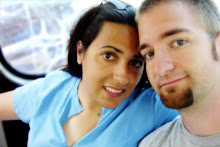To Baby Talk or Not to Baby Talk?
One question that is often raised is whether adults should speak to infants in "baby talk". A study I reviewed indicated a strong correlation between the quality of the parents' speech and infant speech perception performance. So the short answer is: do not use baby talk.
(Source: Journal of Developmental Science)
Milestones of speech recognition and development
- The beginning signs of communication occur during the first few days of life when an infant learns that a cry will bring food, comfort, and companionship. The newborn also begins to recognize important sounds in his or her environment. The sound of a parent or voice can be one important sound.
- As they grow, infants begin to sort out the speech sounds (phonemes) or building blocks that compose the words of their language. Research has shown that by six months of age, most children recognize the basic sounds of their native language.
- As the speech mechanism (jaw, lips, and tongue) and voice mature, an infant is able to make controlled sound. This begins in the first few months of life with "cooing," a quiet, pleasant, repetitive vocalization. By six months of age, an infant usually babbles or produces repetitive syllables such as "ba, ba, ba" or "da, da, da." Babbling soon turns into a type of nonsense speech (jargon) that often has the tone and cadence of human speech but does not contain real words.
- By the end of their first year, most children have mastered the ability to say a few simple words. Children are most likely unaware of the meaning of their first words, but soon learn the power of those words as others respond to them.
- By eighteen months of age, most children can say eight to ten words.
- By age two, most are putting words together in crude sentences such as "more milk." During this period, children rapidly learn that words symbolize or represent objects, actions, and thoughts. At this age they also engage in representational or pretend play.
- At ages three, four, and five, a child's vocabulary rapidly increases, and he or she begins to master the rules of language.
(Source: NIDCD Speech and Language Developmental Milestones)











